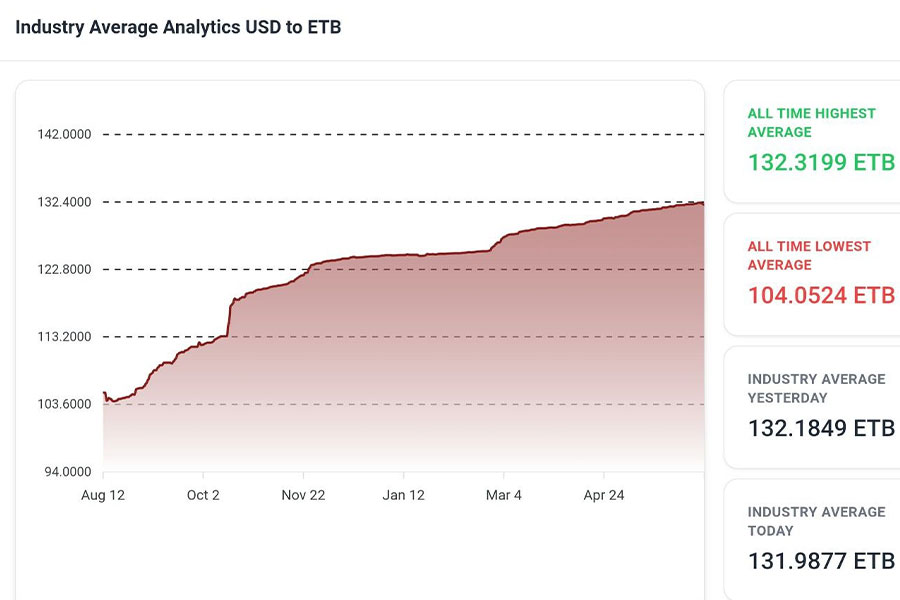
Mar 18 , 2023
By Robin Willoughby , Nico Muzi
With the agricultural sector approaching a crossroads, decision-makers in government, industry, and civil society will need to heed the lessons from major transitions in other industries and start preparing.
The preparation will require a careful inventory of farmers, workers, and consumers' needs. While farmers are growing older and leaving the land for other pursuits or retirement, the agriculture sector is struggling to attract new entrants – and not just in richer industrialized countries. For every farm manager under 40, there are three over the age of 65 in Europe; and from Sub-Saharan Africa to Asia, Latin America, and the Caribbean, the number of older people living in rural areas is increasing while the number of young people declines.
At the same time, farms are becoming larger, and small farm operations are being squeezed. Owing to the challenging economics of farming and the power of a small number of giant industry incumbents, farms are being consolidated in the name of efficiency and economies of scale. As a result, the European Union (EU) lost more than one-third of its farms, and 40pc of its livestock farms, from 2005 to 2020.
Policymakers are thus left to consider whether and how to protect family farms, and how to avoid the risks of animal-welfare violations, poor working conditions, and diseases that are inherent in industrial livestock farming. Policymakers are also waking up to the compelling body of evidence about industrial meat production's environmental harms. While agriculture accounts for nearly one-third of all greenhouse-gas emissions, livestock alone (particularly cattle) contributes nearly 15pc.
Moreover, animal agriculture is the leading cause of deforestation and biodiversity loss. Forests are razed to free up land not just for animal grazing but also for the additional crops needed to feed those animals. Beef production alone takes up some 60pc of land used for agriculture, even though it contributes less than two percent of total calories consumed globally.
In Spain, factory-farm pollution has become so pervasive that pig manure has contaminated nearly one-quarter of all ground and surface water in the country. No wonder regulators are urgently seeking ways to target livestock pollution and produce more on less land. Given the increasing risk that infectious diseases will spread from animals to humans (zoonoses) through industrial livestock farming, the impetus for tighter regulation will only grow.
While livestock and agriculture have traditionally been excluded from most emissions-reduction schemes, policymakers in Denmark the Netherlands and New Zealand are already working to close this gap, and many other countries will soon follow suit. The question now is not whether there will be increased regulation of the livestock industry, but what shape and form it will take. Farmers and companies alike should be prepared to adapt to changes that are now inevitable.
Consumers, too, are shifting away from meat and dairy.
Over the past decade, the average person's meat consumption has decreased by almost 17pc in the United Kingdom (UK) and 11pc in Germany. Notwithstanding a recent slowdown, there is still growth in the uptake of alternative proteins – a food source that produces only a tiny fraction of the negative environmental and animal-welfare effects of traditional meat products. Plant-based meat and milk sales are already trending up across the board in the EU, but also in countries like Thailand and South Africa. When these products reach taste and price parity with meat, their uptake by consumers could accelerate very quickly indeed.
Public policy also has a role to play. Livestock farming tends to be heavily subsidised in many countries, owing to the sector's low margins and high levels of debt. As sales fall, declining revenue is likely to have significant welfare implications for farmers and other workers tied to the industrial meat-production systems.
Given the complexities of these interacting trends, policymakers and corporate leaders need to start getting in front of this issue now. The experience of other sectors that have begun decarbonizing – not least energy – shows that a planned and guided transition is always better than an ad hoc, unmanaged process.
One need look no further than last year's farmer protests in the Netherlands and New Zealand to see how abruptly climate policies can be disrupted when workers and communities feel left out. Unfortunately, we still have only a limited understanding of how best to integrate policy and corporate action to reduce food-system emissions while also protecting livelihoods. Since resisting change is not an option, policymakers and corporate leaders would do well to start thinking about how they will manage it in the coming years.
PUBLISHED ON
Mar 18,2023 [ VOL
23 , NO
1194]

Verbatim | Jun 08,2024

Commentaries | Jan 27,2024

Radar | Nov 26,2022

Viewpoints | Jun 22,2019

Money Market Watch | Jun 15,2025

Commentaries | May 14,2022

My Opinion | Dec 23,2023

Viewpoints | Mar 30,2024

Commentaries | Sep 11,2020

Viewpoints | Mar 09,2024

My Opinion | 131453 Views | Aug 14,2021

My Opinion | 127805 Views | Aug 21,2021

My Opinion | 125786 Views | Sep 10,2021

My Opinion | 123421 Views | Aug 07,2021

Dec 22 , 2024 . By TIZITA SHEWAFERAW
Charged with transforming colossal state-owned enterprises into modern and competitiv...

Aug 18 , 2024 . By AKSAH ITALO
Although predictable Yonas Zerihun's job in the ride-hailing service is not immune to...

Jul 28 , 2024 . By TIZITA SHEWAFERAW
Unhabitual, perhaps too many, Samuel Gebreyohannes, 38, used to occasionally enjoy a couple of beers at breakfast. However, he recently swit...

Jul 13 , 2024 . By AKSAH ITALO
Investors who rely on tractors, trucks, and field vehicles for commuting, transporting commodities, and f...

Jun 28 , 2025
Meseret Damtie, the assertive auditor general, has never been shy about naming names...

Jun 21 , 2025
A well-worn adage says, “Budget is not destiny, but it is direction.” Examining t...

Jun 14 , 2025
Yet again, the Horn of Africa is bracing for trouble. A region already frayed by wars...

Jun 7 , 2025
Few promises shine brighter in Addis Abeba than the pledge of a roof for every family...

Jun 29 , 2025
Addis Abeba's first rains have coincided with a sweeping rise in private school tuition, prompting the city's education...

Jun 29 , 2025 . By BEZAWIT HULUAGER
Central Bank Governor Mamo Mihretu claimed a bold reconfiguration of monetary policy...

Jun 29 , 2025 . By BEZAWIT HULUAGER
The federal government is betting on a sweeping overhaul of the driver licensing regi...

Jun 29 , 2025 . By NAHOM AYELE
Gadaa Bank has listed 1.2 million shares on the Ethiopian Securities Exchange (ESX),...